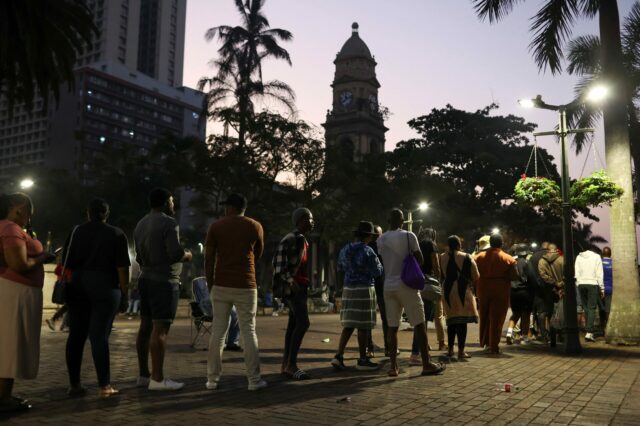Early voting trends suggest the African National Congress is likely to lose the parliamentary majority it has held for 30 years. If the ANC were to lose its majority it would be the most dramatic political shift since the end of apartheid in South Africa’s elections.
With results in from 10% of polling stations, the ANC’s current vote-share stands at 42.3%. The pro-business Democratic Alliance (DA) showed 26.3% and the Marxist Economic Freedom Fighters (EFF) was on 8.1%.
If the final results resemble the early trends, the ANC will be forced to make a deal with one or more parties to govern. This can lead to unprecedented political volatility in the coming weeks or months.
Under South Africa’s constitution, the newly elected National Assembly will elect the next president.
The ANC is still on course to be the largest party. This means that its leader Cyril Ramaphosa is likely to remain the country’s president. A poor showing could make him vulnerable to a leadership challenge from within party ranks.
The ANC has won national elections held every five years since the landmark 1994 election. The election marked the end of apartheid. But since then the ANC’s support has declined because of issues such as high unemployment and crime, power blackouts, and corruption.
Early voting trends also show the ANC and the DA neck-and-neck on about 34% in the key province of Gauteng. This includes the country’s business capital Johannesburg and the townships of Soweto and Alexandra.
With inputs from Reuters
Traveller, bibliophile and wordsmith with a yen for international relations. A journalist and budding author of short fiction, life is a daily struggle to uncover the latest breaking story while attempting to be Hemingway in the self-same time. Focussed especially on Europe and West Asia, discussing Brexit, the Iran crisis and all matters related is a passion that endures to this day. Believes firmly that life without the written word is a life best not lived. That’s me, Ashwin Ahmad.





